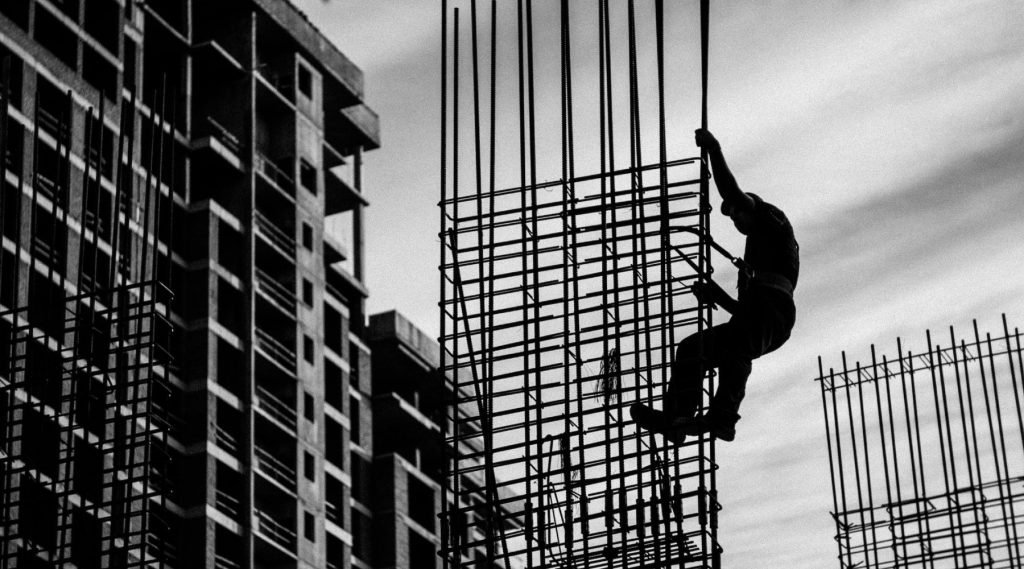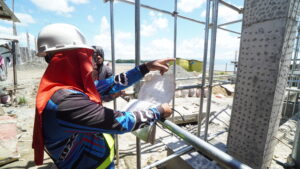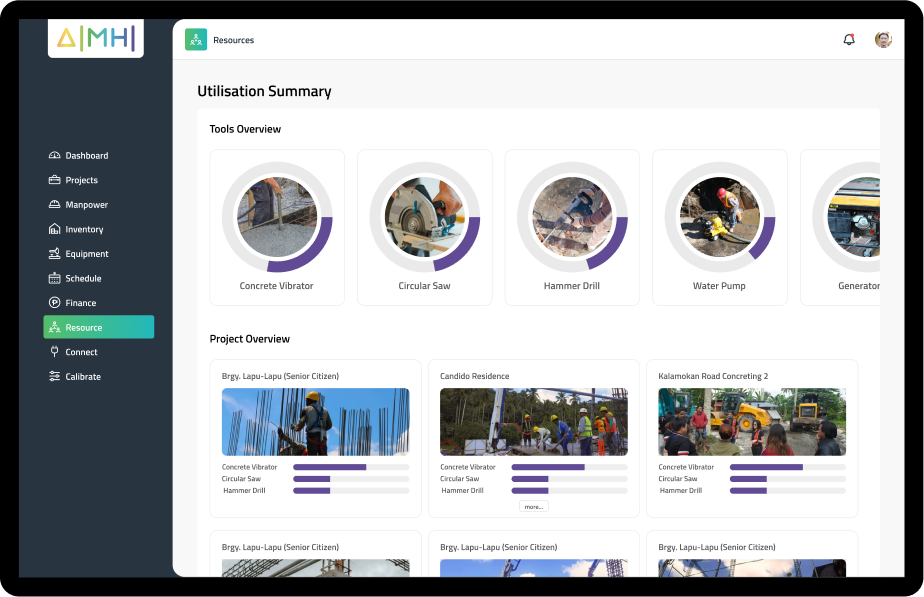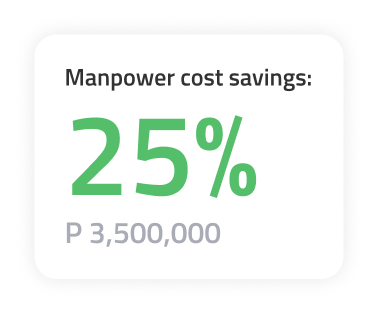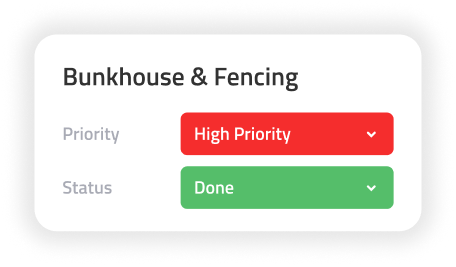THE PARTY’S OVER as the economy hit a downturn in the early months of 2020. Businesses were shuttered leading to massive job losses, rising inflation rates, and causing a turbulent stock market. While some sectors are traditionally recession-proof, some industries can freefall without an end in sight — if it isn’t ready. Although not all businesses are affected in the same way or to the same extent. You can be ready for the rainy days and recession-proof your construction business during an economic downturn.

As defined by the National Bureau of Economic Research (NBER), a recession is a long-lasting decline in economic activity spread across the economy, normally observed as declines in the Gross Domestic Product (GDP), real income, employment, production, and wholesale-retail sales. Given the current timeline, it’s not hard to guess which industries have the hardest hit, partly because of consumers’ dropping income, but also because of restrictions due to the COVID-19 pandemic. Even if restrictions are lifted, we are looking at social distancing and other potentially tedious precautions for the foreseeable future. Retail, restaurants, travel and tourism, leisure and hospitality, manufacturing, and warehousing –while these sectors historically coped with the Great Recession in 2009, they intensely weakened this time around. On the flip of the coin, real estate and construction which were greatly hit then, are given consideration. Then again, the question remains, is construction recession-proof?
RECESSION AND THE CONSTRUCTION INDUSTRY
Oftentimes we see cities and the government invest in construction despite the economic condition. We even ask ourselves some questions about whether it’s the right time for these projects. And to answer the question that’s been the talk of the town: Everybody needs construction, no matter the state of the economy. Communities didn’t have to quit improving roads, fixing drainage systems, or repairing electrical infrastructure. While most jobs close creating a domino effect, people lose work, businesses make fewer sales, and the economy struggles, experts say contractors’ safest bet remains government-funded work.
Although not all recessions are the same. Some recessions reduce the demand for certain types of construction, just like the Great Recession in 2009. Others, such as the one that resulted from the COVID-19 pandemic, increased the demand for work where recession in construction industry is considered irrelevant. This resulted in some construction professionals being considered “essential workers;” where even if a construction worker on a big commercial project lost his or her job at the outset of COVID-19, there is likely a job waiting for them in some other areas of construction. In other words, there was work for those who are willing to be flexible.
Spending on office and hotel projects, for instance, has gone down significantly since the start of the pandemic, according to the U.S. Census Bureau data. However, the Vice President of Public Affairs and Strategic Initiatives at the Associated General Contractors of America, Brian Turmail, notes that publicly funded or subsidized construction projects will remain the safest bet for contractors in a downturn. Construction leaders “ought to look at what are the segments of work that are more likely to be reliable in an economic downturn and are their firms well positioned to take advantage of that work,” said Turmail. Additionally, Chief Economist for Dodge Data & Analytics, Richard Branch mentioned public buildings like schools and healthcare facilities should also be protected from a downturn.
While we cannot predict an economic downturn of any kind, being prepared can help your construction business –not only weather out the storm –but prosper. We’ve gathered tips to prepare your construction business for a possible financial collapse.
5 Strategies to Recession-Proof Your Business: 1. Assess Your Existing Financial Status
- Cut excessive costs. It can be challenging to cut back operating expenses while maintaining a level of quality, but this is particularly important during an economic downturn. In looking for ways to cut back, it’s effective to start with the biggest cost contributor and see if it can be modified resulting in big expense reductions, such as automating manual tasks. Shifting to mix labor with the help of technology improves time efficiency which leads to increased productivity with lesser costs.
- Lessen overhead cost. Overhead costs can become particularly problematic when it comes to recession. Since these are expenses that remain constant regardless of revenue, a slash-and-burn approach can cause more harm than good. There are 3-stages of overhead reductions; (1) the first stage is easy trimming which involves renegotiating contracts with suppliers; (2) the next stage includes process changes like eliminating outsourcing functions that require workflow changes; (3) and lastly, drastic overhead reductions that can generate most savings but are the most disruptive like massive unemployment or moving to a remote workforce. The Great Recession Impact taught business owners that laying off workers is difficult and not a solution. Identifying ways to reduce overhead in advance in a recession can help with scenario planning and help find cost-saving measures that make sense.
2. Evaluate Organization Risk Tolerance
Do a gut check on how much risk your construction business can handle its risk attitude, and how much additional risk it’s willing to take on. Have an honest assessment with your team leaders, your staff, and your systems to determine how adaptable and how much risk they can absorb before cracking under pressure. With that, consider how much additional risk your business is willing to take on and create a range of tolerance. Here are some metrics to consider in measuring risk tolerance:
- Monitor Company Health: organizational or operational, by customer, financials, growth, or process; taken together, it indicates how well an organization performs.
- Measure Progress: measure progress in your company’s key business objectives.
- Identify Problems to Solve: uncover issues that might otherwise go undetected.
- Analyze Patterns: when measured over time, such as month over month, patterns and trends often emerge that can affect decision-making.
- Process Efficiency: with the advancement in technology, construction companies can easily identify blockages and take actions to improve efficiency.
3. Develop A Margin-Driven Attitude
Going over the basics of profit margin, from the recession-proof industries, what are the goods and services that are considered essential? Have a similar objective even if the construction industry is not perceived as essential as it seems. As mentioned above, roads grow old, the cities grow old. One way to achieve this is to niche down and cater so much to a specific need that your construction business becomes the essential go-to for it. Get the idea but choose wisely. Niching down requires truly mastering your business’s role in society. Otherwise, construction challenges may arise such as dissatisfaction. This is not an easy strategy to use, but if it’s a job well done, contractors will be more likely to support you, preserving your revenue.
4. Create An Emergency Fund
Always have a business emergency fund. Just as every financial adviser tells individual savers to establish an emergency fund to cover personal expenses, a cash cushion is a wise business investment, too — especially for startup companies. Create a good for six months emergency cash fund that can cover essential costs, such as payroll, inventory, and utilities. Consider business continuity insurance as a different path to the same objective. Protect your profit.
5. Invest In Adaptable Technology
Today, technology is everywhere. Use it. Use technology to your advantage. The right technology can help keep your construction business afloat even during challenging times as well as save money. It’s best to have the technology checked in advance to avoid costly or embarrassing errors as needed during a crisis. For example, having the technology in place to change production methods, such as making communication easier, having a one-stop app to do construction estimates, creating workforce schedules, and updating reports increasing productivity and profit all at the same time. Such technologies can be a permanent addition, giving customers another way to interact with a business. Consider investing in construction management software to reduce monotonous tasks and increase productivity which leads to increased profit.
Bonus Tip: Cultivate Business Relationships
When things are tough, you need to depend on your workforce. If you haven’t established this by now, just remember, you can’t do this alone.
- Build up employee skills. You need to rely on your team to help your construction business stay flexible, pivot, and think creatively during a recession. Employees must be in prime shape to meet these challenges. Cross-training staff and building up skills can help achieve that end. Investing in employees helps them feel more connected to the business and more willing to go the extra mile when they are called on to do so.
- Invest in client relationships. Staying close to your clients makes sense in all economic climates, most especially during a recession. Understanding their changing needs puts your business in a position to preserve revenue and even penetrate the market more deeply.
Business leaders need useful and accurate financial data, along with tough analysis tools to develop those plans and execute their strategies. By the time the NBER declares a recession, many companies feel like it’s too late to do anything other than slash costs. Recession-proofing construction must begin long before the economic downturn arrives. It requires a lot of planning before and during an economic downturn and is best approached in a thoughtful and measured way to avoid potential errors. Consider these 5 recession-proofing tips to help your company survive or even thrive during an economic slowdown.
What tends to separate the winners from the losers during the downturn is that success is determined by maintaining a growth mindset.
Richard Branch
Book a demo with us to learn more about how AIMHI can increase your profit by as much as 5 to 10 percent.

